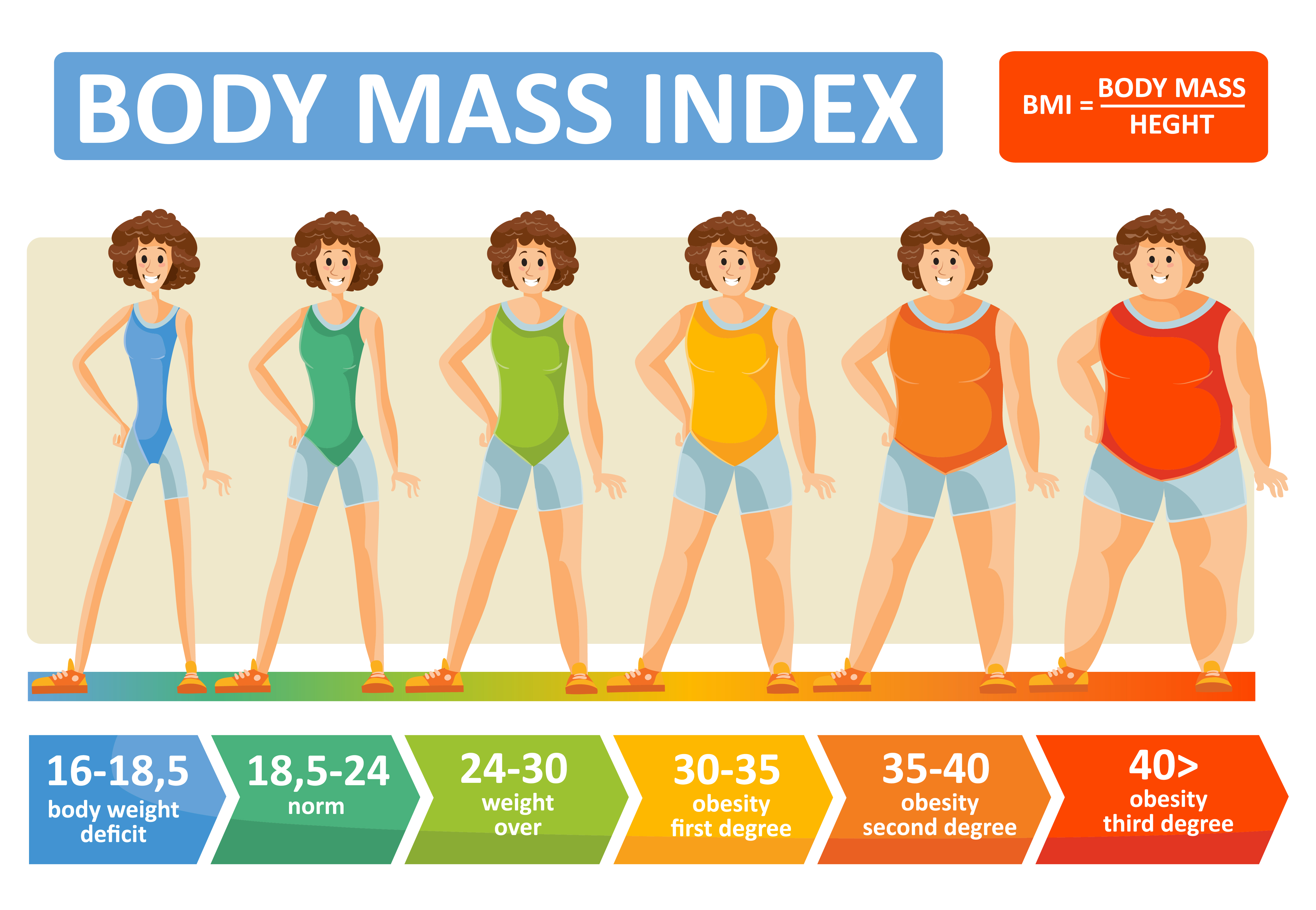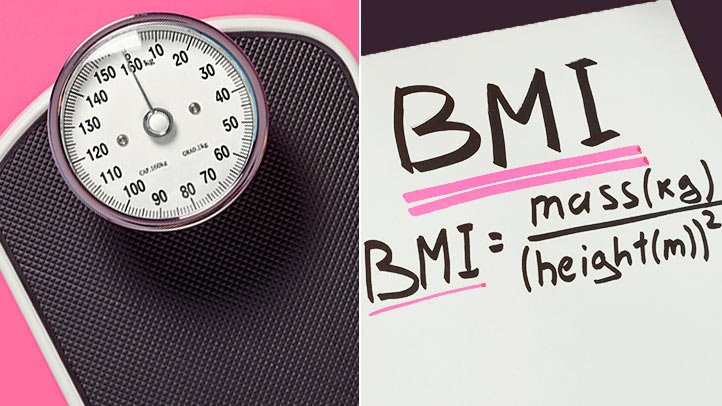
We found some interesting information about BMI. Check out this info:
Among postmenopausal women with normal body mass index (BMI), those with higher body fat levels had an increased risk for invasive breast cancer, according to data presented at the American Association for Cancer Research Special Conference Obesity and Cancer: Mechanisms Underlying Etiology and Outcomes, held Jan. 27-30.
“It was previously unknown whether individuals who have a normal BMI but increased body fat have an increased risk of developing cancer,” said Neil Iyengar, MD, medical oncologist at Memorial Sloan Kettering Cancer Center. “Our findings show that the risk of invasive breast cancer is increased in postmenopausal women with normal BMI and higher levels of body fat, meaning that a large proportion of the population has an unrecognized risk of developing cancer.”
“Body fat levels are typically measured via BMI, which is a ratio of weight to height. While BMI may be a convenient method to estimate body fat, it is not an exact way to determine whole body fat levels, as muscle mass and bone density cannot be distinguished from fat mass,” said Thomas Rohan, MBBS, PhD, DHSc, professor and chair, Department of Epidemiology and Population Health at Albert Einstein College of Medicine. Dual energy X-ray absorptiometry (DXA) is a technology that can specifically measure for fat content, resulting in a more accurate assessment of total body fat levels, he explained.
The investigators analyzed data from the Women’s Health Initiative (WHI), an observational study that follows the health of postmenopausal women ages 50-79. The study included participants who had a normal BMI (between 18.5 to <25.0) with baseline DXA measurements and no history of breast cancer.
During the median 16 years of follow-up, study participants were assessed for the development of invasive breast cancer, and cancer cases were evaluated for estrogen receptor (ER) positivity. Of the 3,460 participants in the study, 182 developed invasive breast cancer during follow-up; 146 of these cases were ER-positive.
In multivariable analysis, compared to women in the lowest quartile of whole body fat mass, women in the highest quartile had approximately a doubling in the risk for ER-positive breast cancer.
Iyengar and colleagues also found that the risk of ER-positive breast cancer increased by 35 percent for each 5-kilogram increase in whole body fat, despite having a normal BMI. “It is also notable that the level of physical activity was lower in women with higher amounts of body fat,” said Iyengar. “This suggests that physical activity may be important even for those who are not obese or overweight.”

“These findings will probably be surprising to many doctors and patients alike, as BMI is the current standard method to assess the risks for diseases related to body weight,” said Andrew Dannenberg, MD, associate director of Cancer Prevention at the Sandra and Edward Meyer Cancer Center of Weill Cornell Medicine. “We hope that our findings will alert women to the possibility of increased breast cancer risk related to body fat, even if they have a healthy weight.”
A limitation to the study is that the researchers were unable to analyze how changes in body fat over time related to breast cancer risk. The authors noted that findings from this study are limited to postmenopausal women and are not generalizable to other populations or other cancers.
Several authors of this study are supported by the Breast Cancer Research Foundation. The WHI program is funded by the National Heart, Lung, and Blood Institute, National Institutes of Health, U.S. Department of Health and Human Services. The investigators declare no conflicts of interest.
Most know that having a large belly may be unhealthy. But did you know that not all belly fat is bad? Much of the fat in the stomach area lies directly under the skin. This is called subcutaneous fat and is not necessarily hazardous to your health. The fat that is harmful is the unseen fat around your organs, otherwise known are visceral abdominal fat. You may have visceral fat but yet not be obese.
A study done in 2004 showed that patients who instantly lost 30 pounds of subcutaneous fat through liposuction surgery had no health improvement if they had a lot of visceral abdominal fat that remained. Visceral fat around abdominal organs cannot be liposuctioned unfortunately.
Risk factors including blood pressure, cholesterol and insulin sensitivity are not improved with loss of subcutaneous fat from the liposuction procedure.
Visceral fat is linked to diabetes and heart disease much more than BMI (body mass index.) Researchers believe that visceral fat may just be a side effect of an unhealthy lifestyle. What is important to know is that most people with a lot of belly fat also have a lot of visceral fat.








